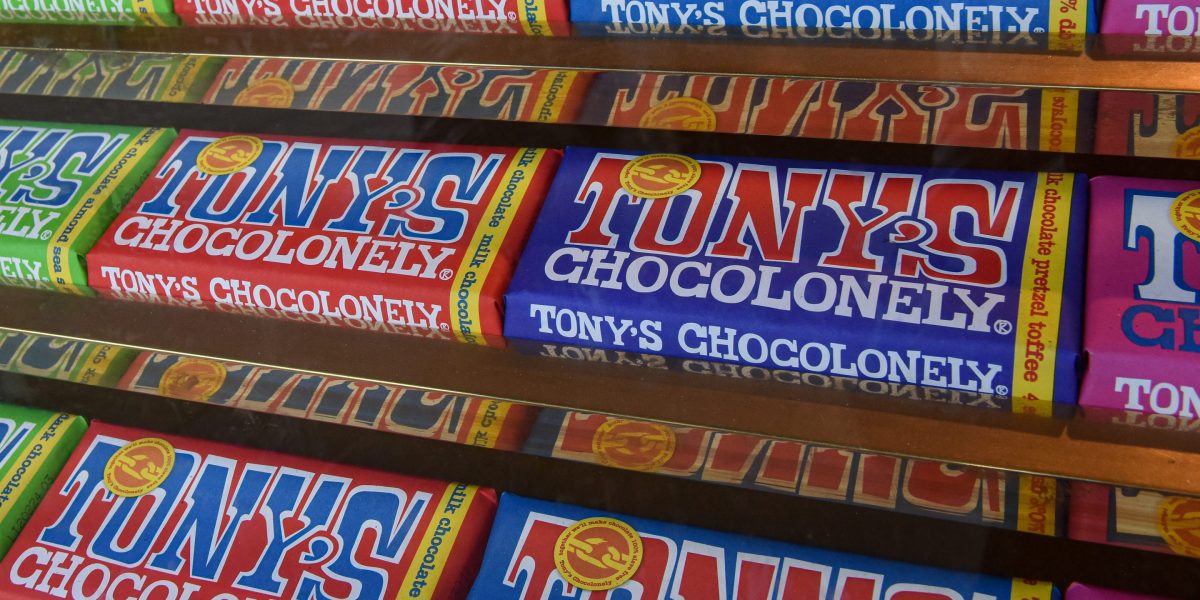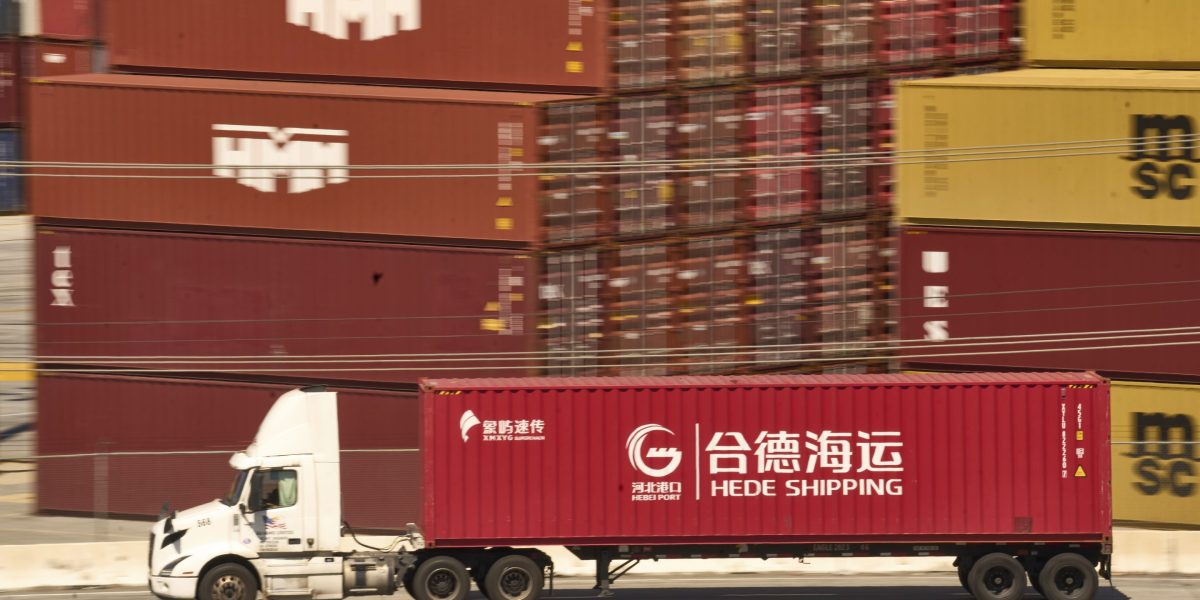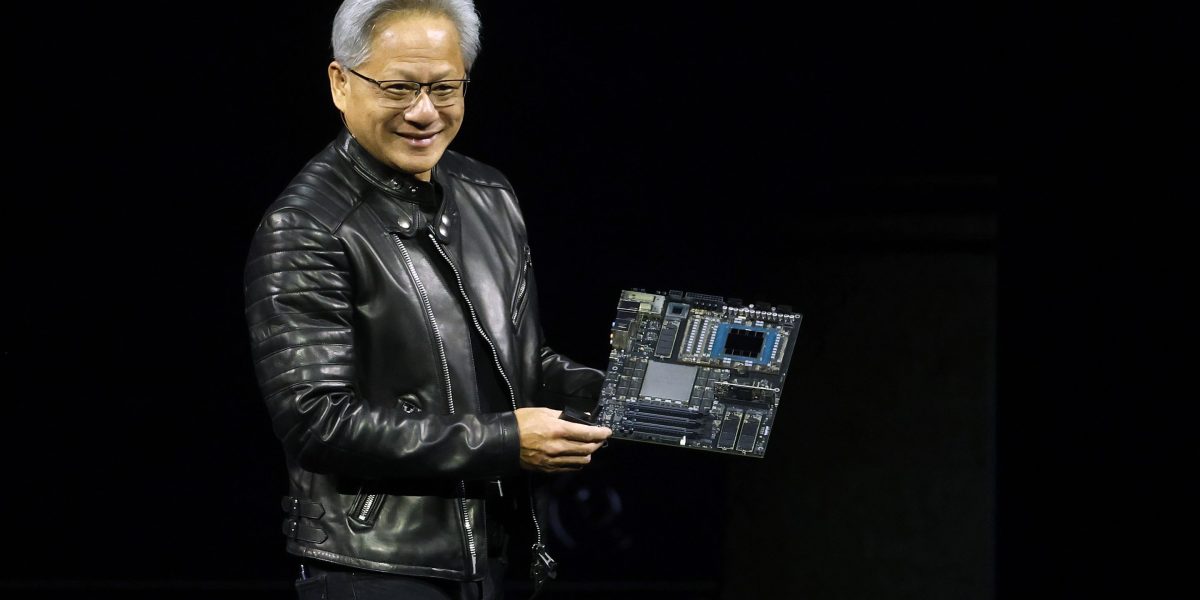Nvidia, the company most closely connected to the AI boom, once again finds itself in the middle of the U.S.’s tech rivalry with China.
The chipmaker’s shares dropped almost 7% in post-market trading after the company revealed it could no longer export its H20 chips to Chinese customers. In a securities filing, the chipmaker said that it would take a $5.5 billion charge due to the export ban.
Export controls now extend to Nvidia’s H20 chip, AMD MI308 chip, and their equivalents. AMD’s shares fell 7.6% post-market.
Shares of Nvidia’s suppliers in Asia also fell in Wednesday trading. Taiwan Semiconductor Manufacturing Corporation fell 2.5%, while memory maker SK Hynix dropped 3.9%.
Nvidia designed the H20 chip to comply with previous Biden rules on chip exports to China. In its most recent earnings report, Nvidia reported that it generated 13% of its revenue from customers using China as a billing location, down from 17% the year before. Analysts previously estimated that Nvidia shipped $12 billion worth of H20 chips to China in 2024.
The Nvidia news helped send Asia-Pacific markets lower on Wednesday. Hong Kong’s Hang Seng Index fell dipped around 1.9%, with tech firms hardest hit. Markets in South Korea, Japan, and Taiwan also fell.
Still, analysts aren’t surprised that Washington is continuing to tighten the screws on Nvidia amid an intensifying trade war and tech rivalry with Beijing.
“Nvidia’s chip trade with China and that of others has been in the crosshairs of the U.S. government for some time,” Marc Einstein, a Japan-based research director for Counterpoint Research, says. He adds that DeepSeek’s ability to leverage less powerful chips for high performance AI has raised alarm bells in the U.S. government.
Dan Ives of Wedbush Securities writes that Nvidia is a “key strategic asset” for the Trump administration, and that the White House wants to ensure that the company’s chips don’t make their way to China amid Trump’s trade war.
But that might also place Nvidia at the center of negotiations between China and the U.S., if and when they happen. Chip controls are “part of the overarching trade issues between the U.S. and China, and would likely be included in any trade deal that is reached,” Einstein says.
Trump’s move also suggests he’s likely to continue his predecessor’s more focused export controls against China’s tech sector, even as he targets China’s exports more broadly.
Einstein thinks Nvidia will be able to shrug off Trump’s recent chip ban, due to its strength outside the China market. Yet he warns that export controls will “hasten China’s desire for more sophisticated domestic semiconductors.”
China is quickly becoming a chip powerhouse, primarily regarding less advanced “legacy chips.” But the country is slowly making progress on its attempts to create more advanced chips at scale.
Huawei, which has been barred from buying advanced chips since 2020, showed that it could shrug off U.S. sanctions when it unveiled a premium smartphone with a domestically-manufactured processor for the first time in 2023. The Chinese tech giant has since expanded to AI chips; its Ascend chips, which are aimed at competing with processors made by Nvidia and AMD, are now being used in connection with DeepSeek, the Chinese AI model that rocked markets earlier this year.
Experts note that U.S. export controls are driving further investments in Chinese tech self-sufficiency, as the chip industry is forced to learn how to make chips without access to U.S. semiconductors and chipmaking tools.
“It is unrealistic to expect a lead of more than a year or two, even with extremely aggressive export controls,” Gregory Allen, director of CSIS’s Wadhwani AI center, wrote earlier this year, referring to the gap between the U.S. and China in AI development.
Beijing is also doubling down on its chip policy. Last year, officials devoted another $47.5 billion into what’s commonly known as the “Big Fund”, an initiative to develop the Chinese semiconductor sector.
This story was originally featured on Fortune.com
Source link


 Entertainment8 years ago
Entertainment8 years ago
 Politics8 years ago
Politics8 years ago
 Entertainment8 years ago
Entertainment8 years ago
 Entertainment8 years ago
Entertainment8 years ago
 Tech8 years ago
Tech8 years ago
 Tech8 years ago
Tech8 years ago
 Tech8 years ago
Tech8 years ago
 Politics8 years ago
Politics8 years ago






